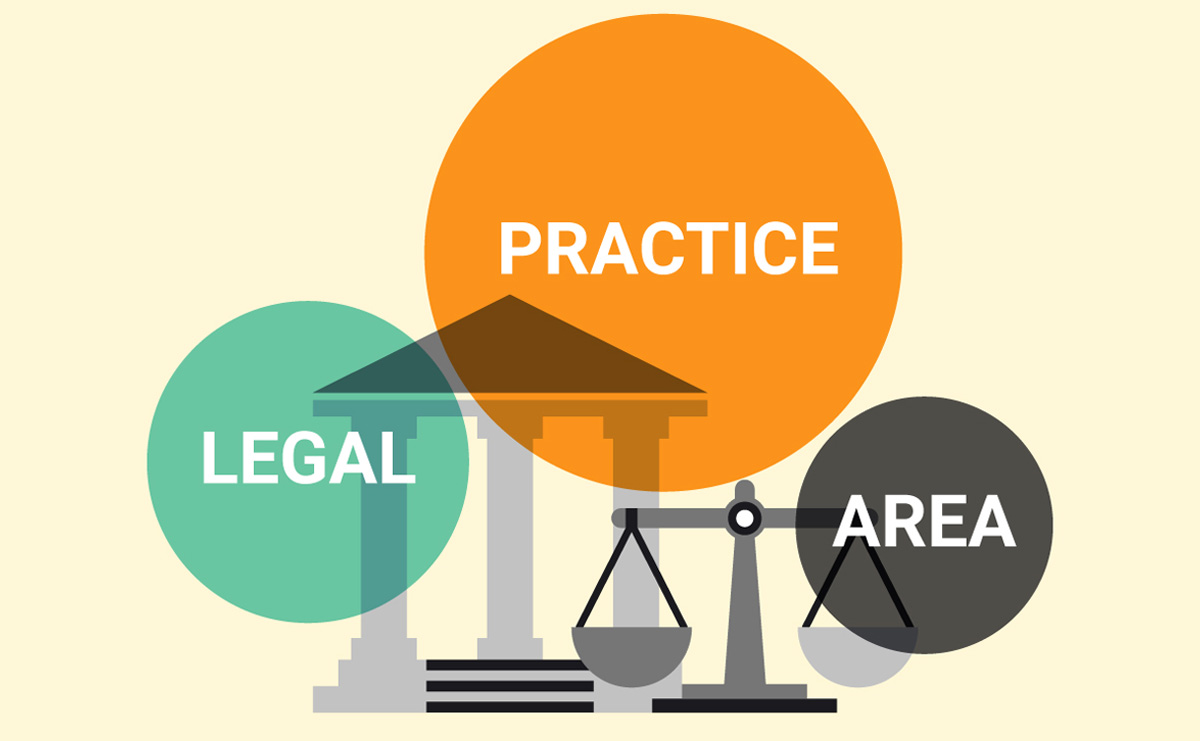Contents
Becoming an Accounting Lawyer: Bridging Law and Finance
In today’s complex financial and regulatory landscape, the role of an accounting lawyer has never been more critical. These specialized professionals bring together the precision of accounting and the strategic insights of legal expertise to address intricate challenges faced by businesses, individuals, and organizations. Whether navigating tax disputes, ensuring compliance with financial reporting standards, or providing guidance during high-stakes mergers, accounting lawyers are at the forefront of safeguarding financial integrity and optimizing operations. An accounting attorney with CPA lawyer credentials is uniquely equipped to handle complex financial and legal matters, making them an indispensable resource for businesses navigating tax law.
This article explores the path to becoming an accounting lawyer, the diverse career opportunities in this dynamic field, and the vital contributions these experts make in bridging the gap between law and finance. From managing risks to enabling strategic growth, discover why an accounting attorney is indispensable in today’s interconnected and ever-evolving world.
What is an Accounting Lawyer?
An Accounting Lawyer is a specialized legal professional who combines expertise in accounting and law to provide services related to financial, tax, and regulatory issues. These lawyers typically work at the intersection of financial compliance and legal frameworks, ensuring businesses and individuals meet their legal obligations while optimizing financial operations.
They play a crucial role in interpreting complex financial data and aligning it with applicable legal standards, helping clients navigate challenges such as tax disputes, financial reporting compliance, and regulatory investigations. Their responsibilities often include drafting and reviewing financial agreements, advising on tax planning strategies, and representing clients in audits, litigation, or negotiations with tax authorities and regulatory bodies.
Accounting Lawyers also provide valuable guidance in mergers, acquisitions, and other business transactions where financial and legal considerations overlap. They help ensure proper due diligence, identify potential risks, and create strategies to mitigate liability. Their dual expertise makes these professionals well-equipped to address issues like corporate governance, fraud detection, bankruptcy, and forensic accounting.

Given the increasing complexity of global financial regulations, Accounting Lawyers are in high demand across industries. They serve various clients, including multinational corporations, small businesses, nonprofit organizations, and high-net-worth individuals, offering tailored solutions to meet unique financial and legal needs.
By bridging the gap between accounting and law, these specialists help clients avoid costly mistakes, maintain compliance, and achieve their financial goals, providing security and confidence in their expertise, and making them indispensable in today’s business and regulatory environment.
How to Become an Accounting Lawyer
An accounting lawyer combines expertise in law and accounting to handle complex financial and legal issues for businesses, individuals, and organizations. These professionals play a vital role in areas such as tax law, corporate finance, compliance, and financial litigation. To embark on this career path, you must follow a structured journey that involves education, certification, and practical experience.
Practical experience is key to feeling prepared and competent in this field. The first step is to obtain a bachelor’s degree. Majoring in accounting, finance, or a related field is recommended to build a strong foundation in financial systems and principles. During your undergraduate studies, focus on developing analytical skills, attention to detail, and a thorough understanding of accounting practices. Internships in accounting or finance-related roles can provide practical exposure and enhance your resume.
Next, pursue a Juris Doctor (J.D.) degree from an accredited law school. Admission requires taking the Law School Admission Test (LSAT), so prepare diligently. During law school, prioritize business law, tax law, and corporate finance courses to align your studies with your career goals. Many institutions offer electives or certifications in these areas, which are particularly beneficial for aspiring accounting attorneys.
For those seeking a competitive edge, a dual degree program such as a J.D./MBA or a J.D./CPA is highly recommended. These programs combine legal and accounting expertise, making you highly marketable. While a dual degree requires a greater time commitment, it equips you with comprehensive knowledge in both disciplines, which employers highly value.
After graduating from law school, you must pass the bar exam in the state where you intend to practice. Obtaining a license to practice law is a critical step. Becoming a Certified Public Accountant (CPA) can significantly enhance your qualifications. While not mandatory, a CPA certification adds credibility to your profile and broadens your career opportunities. You must pass the CPA exam and fulfill work experience requirements specific to your jurisdiction to achieve CPA status.
Work experience is crucial to building expertise and establishing your career. Seek internships in law firms or organizations specializing in tax law, corporate law, or financial compliance. After law school, begin your career in a law firm, corporation, or government agency dealing with financial regulations. These experiences will help you develop the practical skills needed to excel as an accounting lawyer.
Staying updated with continuing education is essential in this field, as legal and financial regulations constantly evolve. Attend seminars, workshops, and courses to remain informed about changes in tax laws, financial compliance, and accounting practices. This will keep you informed and knowledgeable, which is crucial in this field. Building a strong professional network is equally important. Joining organizations like the American Bar Association (ABA) or the American Institute of CPAs (AICPA) can provide valuable connections and career advancement opportunities.
Once you have established your credentials, explore various career paths available to accounting lawyers. These include working in law firms specializing in tax law or financial litigation, corporate roles handling compliance and mergers, or government positions with tax authorities or regulatory bodies. Many accounting attorneys also choose private practice, offering consulting services in financial law.
Becoming an accounting lawyer requires a combination of education, certification, and hands-on experience in law and accounting. While the journey can be demanding, it is a rewarding career offering diverse industry opportunities. You can succeed in this dynamic and impactful profession by building a strong foundation, excelling in law school, and staying committed to continuous learning.
Career Opportunities for Accounting Lawyers
Accounting lawyers are in high demand across many industries because their unique blend of legal and financial expertise helps businesses tackle complex challenges in today’s fast-paced world. Many small business owners rely on a CPA lawyer to handle both their tax compliance and contractual negotiations. With this specialized skill set, they can explore a variety of career paths, including:
Tax Attorney
Specializing in tax law, tax attorneys play a strategic role, representing individuals, businesses, and organizations during audits, disputes, and negotiations with tax authorities. Their advice on minimizing tax liabilities and ensuring compliance with ever-changing tax regulations is crucial. They are often employed by law firms, accounting firms, corporations, or even work as independent practitioners.
Corporate Counsel
In-house legal counsel roles in corporations offer accounting lawyers opportunities to advise businesses on financial regulations, corporate governance, and tax-efficient strategies. These professionals play a key role in mergers, acquisitions, and restructuring efforts, ensuring compliance with local and international financial laws. They may also oversee the legal aspects of financial reporting and regulatory filings.
Government Roles
Accounting lawyers working in government roles, particularly in agencies like the Internal Revenue Service (IRS), the Securities and Exchange Commission (SEC), and the Financial Crimes Enforcement Network (FinCEN), play a significant role in shaping financial legislation. They contribute to the enforcement of financial laws and regulations, investigate financial crimes, prosecute violations, and develop policies to enhance compliance, thereby protecting public interests.
Private Practice
In private practice, accounting lawyers have the opportunity to build their niche by offering specialized legal and financial advisory services to a diverse range of clients, including individuals, small businesses, and large corporations. Their focus on areas like tax planning, estate planning, bankruptcy law, and litigation related to financial disputes allows them to tailor their services to unique client needs, providing a personalized approach that is often not possible in other settings.
Consulting Firms
Large consulting firms and management consultancies rely on accounting lawyers to assist clients with regulatory compliance, financial planning, and risk management. These roles involve crafting strategies to navigate complex legal and financial challenges, conducting audits, and advising on cross-border transactions. Accounting lawyers in consulting often work on high-profile cases that require legal acumen and financial expertise.
Bankruptcy and Insolvency
Accounting lawyers are critical in navigating bankruptcy and insolvency cases, representing creditors, debtors, or trustees. These roles involve restructuring debts, negotiating with stakeholders, and ensuring compliance with bankruptcy laws. Their dual expertise helps mitigate financial losses and create sustainable recovery plans.
Litigation and Dispute Resolution
Accounting lawyers often serve as litigators or advisors in financial disputes, fraud investigations, and commercial litigation. Their understanding of financial statements and accounting principles allows them to analyze evidence, collaborate with forensic accountants, and effectively represent clients in court or arbitration settings.
Estate and Wealth Planning
In estate and wealth planning, accounting lawyers assist clients in structuring their assets to minimize tax liabilities and protect wealth for future generations. They draft wills, trusts, and other estate planning documents and offer comprehensive advice on inheritance laws and financial strategies. When dealing with a complicated estate planning issue, hiring a CPA lawyer ensures both the tax implications and legal structures are optimized.
International Tax and Trade
Accounting lawyers provide critical advice on international tax laws, transfer pricing, and cross-border transactions for multinational corporations and businesses engaged in global trade. These roles often require navigating the complexities of multiple jurisdictions while ensuring compliance and optimizing financial outcomes.
Forensic Accounting and Fraud Investigation
In financial fraud or embezzlement cases, accounting lawyers often work alongside forensic accountants to investigate and build cases. They may also serve as expert witnesses, helping courts understand the financial aspects of complex disputes.
Real Estate Transactions
Accounting lawyers specializing in real estate help clients structure property transactions, address tax implications, and navigate legal issues related to real estate investments. These roles are particularly significant for high-value or commercial real estate deals.
Academia and Research
Some accounting lawyers choose careers in academia, teaching courses on tax law, corporate law, and financial regulations. They may also conduct research on emerging legal and financial trends that influence policy development and contribute to scholarly advancements in their field.
Challenges in the Field
Being an accounting lawyer is undoubtedly rewarding, but it comes with its fair share of challenges. These professionals must juggle both legal and financial expertise, often navigating intricate and evolving landscapes. Here are some of the most significant hurdles faced by accounting lawyers:
Stay Updated: Accounting lawyers must stay current with ever-evolving tax laws, financial regulations, and accounting standards. The field’s dynamic nature requires ongoing education, professional development, and regular certification renewals. It is a demanding yet essential part of the job.
High-Stakes Decision-Making: Errors in legal or financial matters can have serious consequences, such as hefty fines, reputational harm, or even legal action for clients. Accounting lawyers must thoroughly analyze complex scenarios, offering accurate advice to minimize risks and ensure compliance.
Managing Workload and Life Balance: The profession’s dual expertise often leads to heavy workloads, especially during tax season or when clients face audits or disputes. This intensity can make it challenging to maintain a healthy work-life balance, potentially resulting in stress and burnout.
Meeting Complex Client Demands: Clients frequently need customized solutions that require both legal and financial insight. Addressing these needs calls for sharp problem-solving abilities, a keen eye for detail, and the skill to explain complex concepts in simple, relatable terms.
Embracing Technology: With the rise of legal tech, financial software, and data analysis tools, accounting lawyers must keep up with technological advancements. Learning and adapting to new systems can be time-consuming, especially while managing other professional responsibilities.
Navigating Ethical Dilemmas: Striking a balance between client interests and strict legal or ethical standards can be tricky. Accounting lawyers often find themselves in gray areas, where maintaining integrity while offering practical solutions is crucial.
Tackling Global Challenges: In today’s interconnected world, accounting lawyers frequently work with international clients, cross-border transactions, and varying regulations. Mastering the complexities of multiple jurisdictions adds another layer of difficulty to the role.
Working Under Scrutiny: Regulators, auditors, and compliance officers closely monitor the actions of accounting lawyers. Ensuring compliance with stringent financial and legal standards can feel like navigating a minefield, amplifying the pressure of the job.
Despite these challenges, accounting lawyers play an essential role in bridging the gap between law and finance. By staying informed, honing their skills, and maintaining resilience, they can thrive in this demanding yet fulfilling career path.
Why This Career Matters
In an era of global trade, digital currencies, and stringent regulations, businesses need professionals who can navigate overlapping legal and financial complexities. Accounting lawyers fill this critical gap, ensuring compliance, minimizing risks, and facilitating strategic growth.
These specialists bring a unique blend of legal expertise and financial acumen, allowing them to address issues ranging from tax structuring and financial reporting to regulatory compliance and dispute resolution. For instance, they can help businesses understand and comply with the complex tax implications of cross-border transactions or interpret international laws when setting up subsidiaries in different countries. As businesses increasingly operate across borders, accounting attorney plays a pivotal role in interpreting and adhering to international laws and tax treaties, helping organizations avoid penalties while optimizing their financial strategies.
Moreover, accounting lawyers are essential for managing risks associated with emerging technologies, such as cryptocurrency transactions, blockchain-based contracts, and digital assets, in a rapidly digitizing world. They ensure businesses stay ahead of evolving regulations while leveraging technological advancements to gain a competitive edge, providing a sense of security and confidence in the face of uncertainty.
Their involvement extends beyond compliance; accounting lawyers provide strategic guidance during mergers and acquisitions, audits, and corporate restructuring. By anticipating potential legal and financial challenges, businesses can make informed decisions that align with their long-term goals, giving them a sense of control and empowerment in a complex business environment. In a landscape where regulatory scrutiny intensifies, having an accounting lawyer on your team is not just an advantage—it is necessary for sustainable success.
Final Thoughts
Accounting lawyers are indispensable in today’s interconnected and dynamic world, where financial complexities and regulatory challenges are at the forefront of business operations. Their ability to seamlessly integrate legal expertise with financial acumen positions them as trusted advisors to businesses, individuals, and organizations navigating high-stakes decisions.
Accounting lawyers play a unique role in today’s business landscape. They ensure compliance with ever-changing regulations, mitigate risks and foster strategic growth. Their ability to bridge critical gaps between legal frameworks and financial realities is what makes them indispensable. This unique skill set helps clients thrive in a competitive and globalized market. The dual expertise of an accounting attorney with CPA lawyer credentials is beneficial in cases involving financial audits or litigation.
Pursuing a career as an accounting lawyer is demanding and rewarding. It requires a steadfast commitment to education, professional development, and adaptability to excel in a field that is as challenging as it is impactful. This profession is not for the faint-hearted, but for those with a passion for law and finance, it provides a chance to make a meaningful difference in clients’ lives and businesses’ success.
In a world where regulatory scrutiny continues to grow, and financial landscapes evolve rapidly, the expertise of an accounting attorney is not just beneficial—it is essential. Whether shaping corporate strategies, resolving complex disputes, or driving innovation in emerging areas such as cryptocurrency and global trade, these professionals are not just working in the present but also shaping the future of legal and financial collaboration. Their work ensures a more secure, compliant, and strategic pathway for organizations and individuals, giving us hope for a better, more regulated future.
RunSensible: Your Partner in Growth, Innovation, and Legal Excellence
Technology is not just a tool; it is a partner in your law firm’s success. When you integrate RunSensible into your practice, you begin a continuous growth and adaptation journey. RunSensible’s competitive edge helps you stay ahead of the curve, ensuring that your firm remains efficient, innovative, and competitive.
Whether you are managing contracts, handling client intake, or overseeing legal operations, RunSensible equips your team with the technology to work smarter, not harder. Explore how RunSensible’s all-in-one platform can revolutionize your legal department today and keep your organization ahead in a competitive legal landscape. Request a demo now and see how RunSensible can transform your team’s efficiency!
Disclaimer: The content provided on this blog is for informational purposes only and does not constitute legal, financial, or professional advice.







